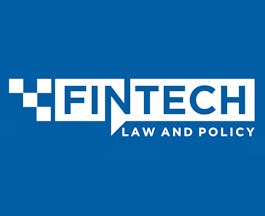Filter by
The language used throughout the course, in both instruction and assessments.
Choose the Fintech Course That Aligns Best With Your Educational Goals

University of Pennsylvania
Skills you'll gain: FinTech, Finance, BlockChain, Innovation, Investment Management, Financial Management, Financial Analysis, Risk Management, General Statistics, Payments, Algorithms, Behavioral Economics, Entrepreneurial Finance, Market Analysis, Market Research, Cryptography, Human Learning, Machine Learning Algorithms, Machine Learning Software, Securities Trading, System Security, Applied Machine Learning, Machine Learning, Product Strategy, Business Transformation, Systems Design

University of Michigan
Skills you'll gain: FinTech, Finance, BlockChain, Decision Making, Risk Management, Financial Analysis, Investment Management, Leadership and Management, Critical Thinking, Data Analysis, Innovation, Machine Learning, Algorithms, Banking, Entrepreneurship, Cryptography, Data Mining, Payments, Statistical Analysis, Cyberattacks, Network Security, Probability & Statistics, Statistical Machine Learning

University of Pennsylvania
Skills you'll gain: FinTech, Finance, Behavioral Economics, BlockChain, Financial Analysis, Financial Management, Market Research, Payments, Risk Management, Market Analysis

University of Michigan
Skills you'll gain: FinTech, Finance, Payments, Innovation

The Hong Kong University of Science and Technology
Skills you'll gain: FinTech, Finance, Risk Management, Banking, Leadership and Management, Innovation, Regulations and Compliance, BlockChain, E-Commerce, Financial Analysis, Business Process Management, Data Analysis, Payments, Business Development, Computer Security Incident Management, Financial Accounting, Human Factors (Security)

Duke University
Skills you'll gain: FinTech, Finance, Regulations and Compliance, Banking, Payments, Financial Management, BlockChain, Entrepreneurial Finance, Accounts Payable and Receivable, Securities Trading

The Hong Kong University of Science and Technology
Skills you'll gain: BlockChain, FinTech, Finance, Banking, Data Analysis, E-Commerce, Innovation, Payments, Business Development, Financial Accounting

University of Cape Town
Skills you'll gain: Finance, FinTech, Regulations and Compliance, Banking, BlockChain, Financial Analysis, Business Development, Cryptography, Entrepreneurship, Securities Trading

Duke University
Skills you'll gain: BlockChain, FinTech, Finance, Algorithms, Cryptography, Payments, Banking, Risk Management, Contract Management, Computational Logic, Regulations and Compliance, Securities Trading, Data Mining, Entrepreneurial Finance, Strategy and Operations, Cyberattacks, Financial Analysis, Investment Management, Security Engineering

The Hong Kong University of Science and Technology
Skills you'll gain: FinTech, Regulations and Compliance, Risk Management, Banking, Finance, Financial Analysis, Human Factors (Security), Leadership and Management

Copenhagen Business School
Skills you'll gain: FinTech, Finance, Innovation, Banking, Business Transformation, Leadership and Management, Payments, Regulations and Compliance, Strategy, Strategy and Operations, BlockChain, Business Analysis, Business Development, Cash Management, Entrepreneurship, Network Architecture, Product Development, Product Strategy, Research and Design, Risk Management
 Status: Free
Status: FreeStanford University
Skills you'll gain: Finance, Banking, FinTech, Leadership and Management, Financial Management, BlockChain, Investment Management, Market Analysis, Product Strategy, Risk Management, Payments
Searches related to fintech
In summary, here are 10 of our most popular fintech courses
- Fintech: Foundations & Applications of Financial Technology: University of Pennsylvania
- Financial Technology (Fintech) Innovations: University of Michigan
- FinTech: Foundations, Payments, and Regulations: University of Pennsylvania
- The Future of Payment Technologies: University of Michigan
- FinTech: Finance Industry Transformation and Regulation: The Hong Kong University of Science and Technology
- FinTech Law and Policy: Duke University
- FinTech Foundations and Overview: The Hong Kong University of Science and Technology
- Fintech Startups in Emerging Markets: University of Cape Town
- Decentralized Finance (DeFi): The Future of Finance: Duke University
- FinTech Security and Regulation (RegTech): The Hong Kong University of Science and Technology










